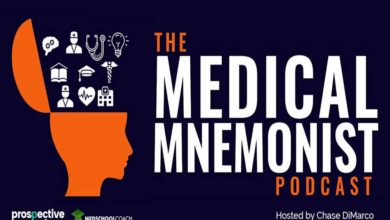Chase DiMarco talks to Miguel Molina, the Chief Operating Officer at Medical Joyworks, a physician-led company offering digital products and solutions to the medical sector. Miguel shares insights into the field of medical education and how he plans to improve students’ clinical skills with evidence-based case studies, adventure scenarios, reference articles, and moderated discussion boards.
- [02:40] Clinical Odyssey: Learn Medicine the Fun Way
- [05:10] How Prognosis Makes Medical Education Interactive and Enjoyable
- [0 8:55] Why Medical Joyworks Decided to Build a QBank
- [15:13] The Price Issue When Signing Up to Medical Programs
- [16:20] The Benefits of Mentorship and Immediate Feedback in Medical Education
- [23:02] Customizing Medical Education to Students’ Learning Styles
- [25:36] The Future of Medical Education
- [27:00] Why Medical Joyworks is Yet to Go the Augmented Reality Way
- [30:56] The Stolen App Game
Clinical Odyssey: Learn Medicine the Fun Way
Clinical Odyssey is an interactive platform specifically built to help students gain the most out of diverse medical learning styles and systems. The platform covers the following distinct titles: Explain Medicine, Clinical Sense, Prognosis: Your Diagnosis, and QBank Prepper. These titles organize and deliver clinical knowledge in clear, individual units called Learning Modules. What’s interesting about these learning modules is that they provide just the right amount of content needed to achieve a specific task and strengthen a clinical concept. Further, when you look at what the world of academia looks like, you’ll be frustrated to find that not much is being done to improve the classroom experience. Lectures are still using the old, outdated, and boring teaching methods that should have been phased out ages ago. It’s for this reason that Medical Joyworks decided to incorporate gamification into their learning modules. Gamification is one of the most effective ways to increase learner retention, engagement, and recall when consuming medical content.
The Future of Medical Education
The pandemic has no doubt impacted all aspects of medical education. For example, social distancing and lockdowns affected the delivery of medical education, testing, and interviewing. Many students experienced restricted hospital interactions while others lacked it all together. This means that students who took classes during the pandemic lacked the necessary hands-on hospital experience, crucial for understanding patient care. And while tests are great for testing knowledge depth, students during these unprecedented times are missing out on essential patient interactions and complex hospital life.
The good news is that more and more schools are taking up augmented reality as an alternative learning tool for medical students. And although the Medical Joyworks team is yet to incorporate augmented reality into their content creation, Miguel believes augmented reality is here to stay.
Resources:
Clinical Odyssey Quality Assurance page
For more study tips, grab a copy of Read This Before Medical School. Don’t forget to leave a rating! Share your experiences, tips, and suggestions to [email protected]. Or you can directly reach out to Chase on LinkedIn, Twitter, or Instagram. Join the Medical Mnemonist Master Mind Facebook group and find our Blog posts, Podcasts, and other Resources at FreeMedEd.org!
